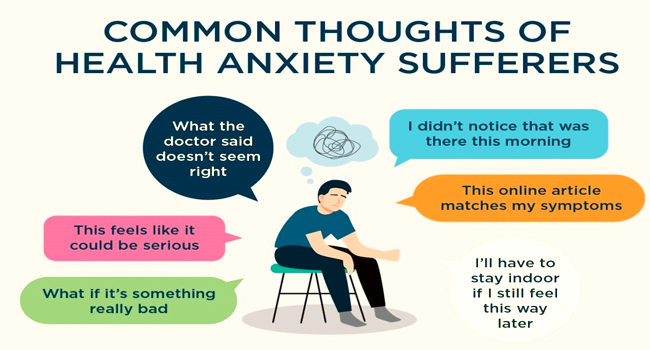Negative thoughts are a conventional human experience, regularly manifesting as self-complaint, pessimism, or fear. Despite their ubiquity, they wield a disproportionate effect on our feelings, behaviours, and typical mental fitness. This essay explores the electricity of poor thoughts, delving into their origins, the psychological mechanisms that amplify their effects, and techniques for mitigating their impact.
The Origins of Negative Thoughts
- The negative mind regularly stems from evolutionary survival mechanisms. Our ancestors faced consistent threats from the environment, predators, and rival human agencies. Those who were extra attuned to capacity risks had a higher hazard of surviving and passing on their genes. This “negativity bias,” as it’s miles referred to, is a way that humans are certainly more touchy to terrible stimuli than superb ones.
- Negative bias isn’t just about survival; it also affects how we process facts. According to research, bad data is processed more well than high-quality facts, leading to more potent memory retention and an extra effect on subsequent behaviour. This evolutionary predisposition means that our brains are hardwired to pay more attention to negative reports, leading to an expanded chance of bad thinking.
Psychological Mechanisms Amplifying Negative Thoughts
- Several psychological mechanisms can enlarge the effect of a negative mind. One of the most extensive is rumination, the manner of constantly thinking about the same negative occasion or thought. Rumination can lead to a vicious cycle wherein terrible thoughts beget greater bad thoughts, developing a downward spiral that may be difficult to interrupt.
- Another mechanism is cognitive distortions, which might be irrational notion patterns that beef up terrible questioning. Common cognitive distortions include:
- Catastrophizing: awaiting the worst-case state of affairs to take place.
- Overgeneralization: drawing large, poor conclusions from a single event.
- Black-and-white thinking: seeing things in extremes, without a centre floor.
- These distortions can distort reality and make it hard to look at conditions objectively, thereby exacerbating bad minds and emotions.
- The self-fulfilling prophecy is every other powerful mechanism. When we harbour poor thoughts about ourselves or our circumstances, we might unconsciously act in ways that result in those bad results. For example, someone who believes they may not need to be more suitable for merchandising might not put in the effort required to attain it, thereby reinforcing their preliminary terrible notion.
The Impact of Negative Thoughts
Negative thoughts will have far-reaching outcomes on numerous factors of our lives, such as mental health, physical health, relationships, and productiveness.
- Mental Health:Chronic poor thinking is intently linked to mental fitness disorders, including depression and anxiety. Similarly, anxiety problems are frequently fueled by chronic bad thoughts, approximately capacity threats and catastrophes.
- Physical Health: The thoughts-frame connection shows how a poor mind can also impact physical health. Chronic strain from terrible thinking can cause a number of bodily problems, including complications, digestive troubles, and cardiovascular sicknesses.
- Relationships:A negative mind can pressure relationships, as it often causes miscommunication, misunderstandings, and conflicts. People who are preoccupied with bad thoughts may find it tough to engage completely with others, leading to feelings of isolation and loneliness. Additionally, poor self-perceptions can prevent one’s capacity to form and maintain wholesome relationships.
- Productivity:Terrible thoughts can hamper productivity and creativity in the administrative centre. When poor thoughts consume individuals, they struggle to concentrate, make selections, and clear up problems correctly. This can reduce overall performance and pride in the process, in addition to extended absenteeism and burnout.
Strategies for Mitigating Negative Thoughts
Despite their energy, poor thoughts may be managed and mitigated via numerous techniques and interventions.
- Cognitive Behavioral Therapy (CBT) is an extraordinarily effective healing technique that enables individuals to identify and challenge their bad thoughts and cognitive distortions. Through CBT, people learn to reframe their negative thoughts in a more effective and realistic light, thereby lowering their impact.
- Mindfulness and Meditation:Mindfulness practices encourage individuals to focus on the present moment and examine their minds without judgment. This can help lessen the tendency to ruminate on terrible thoughts and increase awareness of poor questioning patterns. Meditation can also promote rest and reduce strain, similarly diminishing the effect of bad thoughts.
- Positive Psychology:Engaging in sports that promote advantageous feelings, such as gratitude, physical games, acts of kindness, and savouring advantageous studies, can help counterbalance a negative mind. By specializing in advantageous elements of life, people can shift their attention away from poor questioning.
- Self-Compassion:Self-compassion includes treating oneself with the same kindness and expertise that one could provide to a friend. This can help counteract the harsh self-complaint that frequently accompanies a negative mind. Self-compassion has been proven to enhance emotional resilience and general well-being.
- Challenge and Reframe:One sensible technique is to venture and reframe a terrible mind. This involves asking oneself questions like, “Is this thought based on facts or assumptions?” and “What proof do I even have for and against this idea?” By critically comparing poor thoughts, individuals can regularly see them from a special, extra-balanced perspective.
- Limit Exposure to Negative Influences:Limiting publicity to bad impacts, together with terrible news, poisonous social media, or negative people, can assist in lessening the frequency and depth of negative thoughts. Instead, surrounding oneself with effective influences can create an environment conducive to nice wondering.
Conclusion
The negative mind is a powerful force that can substantially impact our intellectual and bodily health, relationships, and productivity. Their energy is rooted in evolutionary survival mechanisms and is amplified through mental strategies together with rumination and cognitive distortions. However, by knowing the origins and mechanisms of the bad mind and using methods which include cognitive behavioural therapy, mindfulness, nice psychology, self-compassion, and lifestyle changes, individuals can mitigate their effects and lead healthier, more pleasurable lives. Addressing poor thoughts isn’t about casting off them completely but instead about studying to manage them effectively and cultivate a more balanced and fantastic attitude.
